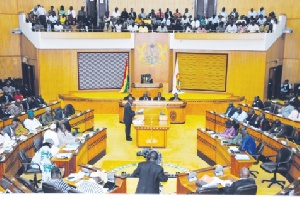The Network for Women’s Rights in Ghana (NETRIGHT) has asked government to demonstrate its commitment toward addressing gender issues, by empowering women with among others passage of the Spousal Property bill and two other gender-related bills pending before Parliament.
It said as a country, and in celebration of the International Women’s Day (IWD): “If we believe in the campaign theme #EachForEqual of the Generation Equality campaign set for this year, then the time is now to accelerate efforts which promote the advancement of women and girls”.
Against this backdrop, it urged President Nana Addo Dankwa Akufo-Addo to show the political willingness and commitment to put in place pragmatic and sustainable systems for addressing gender inequalities and social injustices tin order to promote women and girls’ rights.
It acknowledged that ad hoc gender equality and women’s empowerment interventions which do not seek to tackle systemic barriers and inhibitions that disadvantage women and girls must stop, and called on the president to use his high office to ensure passages of gender-related bills.
Notable among these bills is the Affirmative Action bill, which it is hoped will be passed before the dissolution of this Parliament – as well as the Land bill 2019, with the gender and social inclusion provisions intact.
See Also: Watch and Dine Cinema to spur growth of the local movie industry NETRIGHT said while it acknowledges efforts by past and current governments to institutionalise measures that ensure achievement of the Beijing Platform for Action (BPfA), progress has been very slow due to the lack of political will and adequate resources to address the continuous inequalities, injustices and countless abuses which women and girls face at all levels.
“The kidnapping of the Takoradi girls, recent murders of women in the Ashanti Region, sexual harassment, textbooks affirming gender stereotyping, and the low number of women in the recently inaugurated District Assemblies are but a few examples of the realities women and girls face in contemporary Ghana.”
It said 25 years after adopting the Beijing Declaration and Platform for Action (BPfA), Ghana still champions a development agenda that fails to take into account the specificities of women’s socio-economic conditions.
“For example, Ghana is pursuing Public-Private Partnerships to construct and modernise markets. In our markets, today, lockable shops are replacing stalls and open sheds, with attendant costs that are displacing and dispossessing many poor women and threatening their ability to operate in markets. This is also fragmenting the women’s front in the market, and weakening the leadership’s ability to institute collective action to confront agendas that harm them.”
NETRIGHT also maintained that despite the introduction of multiparty democracy which had promised space for women, it is currently facing a loss of faith in its ability to deliver clean elections and development.
“Ghana, like many systems that run the first-past-the-post political system, has effectively become a two-party state. This is narrowing the space for citizens and for women in particular. The show of force by the two main political parties in creating vigilante groups has lowered the threshold for political violence and intimidation – resulting in an unseemly cycle of post-election public resource grabbing from which institutions, public offices, and even public toilets are not exempt.”
NETRIGHT saluted all Ghanaian women and girls as the world celebrates the ‘International Women’s Day’ focusing on the Beijing+25 campaign theme, ‘I am Generation Equality: Realising Women’s Rights’.
This year’s theme is aimed at mobilising women to influence decisions about their future and promoting a fairer world that leaves no one behind. For us in Ghana, IWD celebrations come on the fringes of our Independence celebration.
“We take the opportunity to celebrate and congratulate the unsung women of Ghana, particularly our many (in some cases) forgotten heroines, for the sacrifices and immense contributions they made to the founding of Ghana and to the 63-year journey to build an independent Ghana and equal and just society.”
General News of Thursday, 12 March 2020
Source: thebftonline.com
NETRIGHT demands passage of Spousal Property bill
Entertainment
















